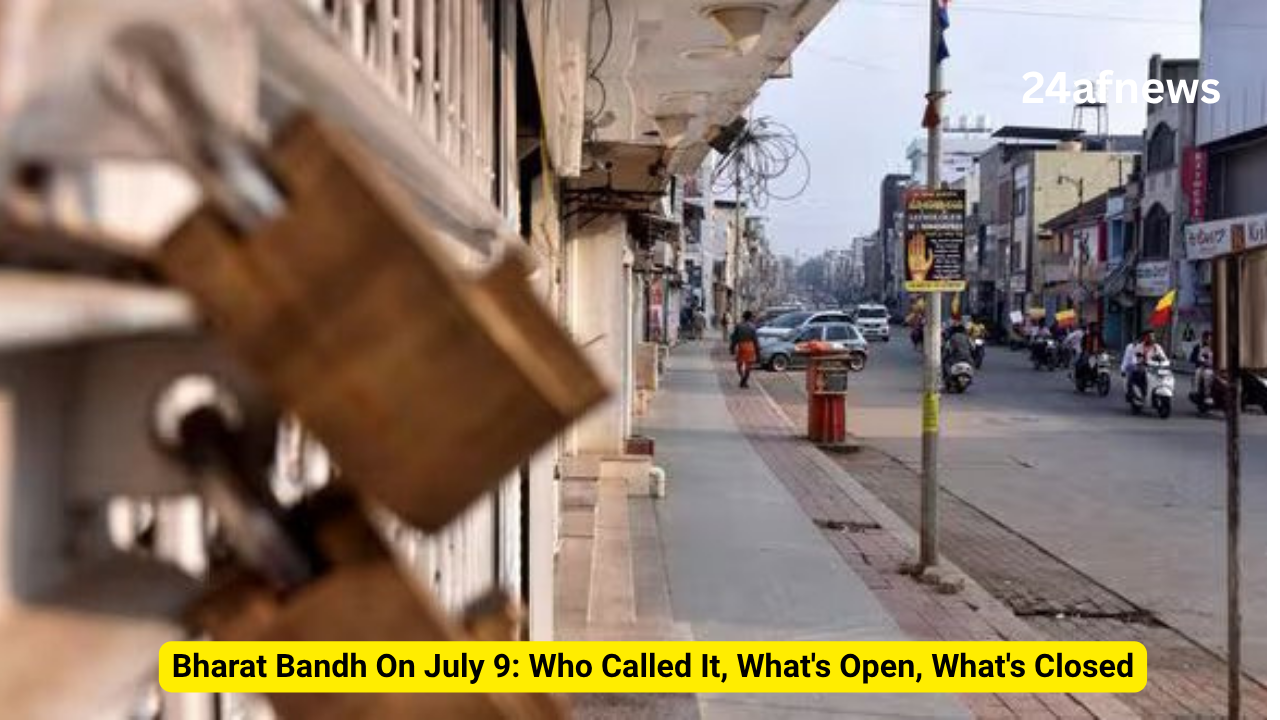
Live Overview & Key Disruptions
-
Over 25 crore workers from government sectors—including banking, postal, coal mining, power distribution, and transport—are taking part in the nationwide Bharat Bandh since early this morning
-
Central trade unions have launched the strike to oppose policies perceived as “anti-worker, anti-farmer and pro-corporate”, particularly new labour reforms and privatisation initiatives
Banking & Financial Sector
-
In Gujarat alone, approximately 20,000 bank employees are striking across over 3,600 branches (public and some private banks), disrupting transactions worth ₹15,000 crore—cheque clearances, cash services, and customer assistance
-
In Kolkata and other regions, most banks (public, cooperative, and private) are participating in the strike, leading to limited branch operations, delays in transactions, and reduced staff availability Across India, banks remain officially open but resources are strained; expect delays rather than complete closure
Public Transport & Power Supply
-
Public transport (buses, trams, ferries, metro) in Kolkata is running as normal; in other states, additional services have been deployed to maintain routine operations
-
Kerala’s KSRTC buses are reportedly unaffected; officials say no strike notice was received, though union claims challenge that assertion
-
Electricity supply may face regional disruptions, with around 27 lakh power sector workers on strike—some outages could occur depending on local union strength
Schools, Colleges & Private Sector
-
No formal holiday has been issued for educational institutions; most schools, colleges, and private offices are operating as usual, though transport issues may disrupt attendance
-
Some institutions have advised caution—recommending parents and employees check local traffic and transport status before heading out .
Public Safety & Services
-
Emergency services—including hospitals, police, and fire departments—are fully operational In Kolkata, around 5,000 police personnel have been mobilized to maintain order, especially around transport hubs
Who’s On Strike & Their Demands
-
The strike is led by 10 major central trade unions, supported by farmers’ and rural labor groups such as the Samyukta Kisan Morcha
-
Workers are demanding:
-
Rollback of four labour codes they deem harmful to collective bargaining and strike rights
-
Urgent recruitment in banks, public sector units, and government departments
-
Restoration of the old pension scheme
-
Raise to minimum pay (~₹26,000)
-
Expansion and betterment of MGNREGA, including urban inclusion
-
What This Means for You
| Sector | Expected Impact | What You Can Do |
|---|---|---|
| Banking | Reduced staff, delays in transactions | Carry cash; use ATMs; defer non-essential work |
| Transport | Mostly running, but delays possible | Leave early, track services |
| Education/Work | Normal operations, but commute may be affected | Inform and leave cushion time |
| Power | Possible outages in some regions | Keep backup plans ready |
My Take
This Bharat Bandh is widely disruptive—not just as a strike, but as a loud message from over 25 crore workers and farmers. Their concerns—labour code rollbacks, retirement benefits, more jobs—highlight critical stress points in India’s development model. Governments often focus on ease of doing business; this is a reminder that ease of living for workers matters too.
Planning ahead—keeping cash at hand, preparing for potential commute delays, and staying aware of local advisories—can help individuals minimize inconvenience. Beyond that, this strike is a critical prompt for policymakers: are we listening and responding, or simply imposing?
Aamir Ahmad Fateh is a seasoned digital marketer and experienced news writer with over 7 years of expertise in covering political affairs, social issues, technology, sports, and Bollywood. He is the founder and chief editor of 24fnews.com, where he is dedicated to delivering accurate, unbiased, and timely news to a wide audience every day. His sharp insights and journalistic integrity make him a trusted voice in the digital news space.



